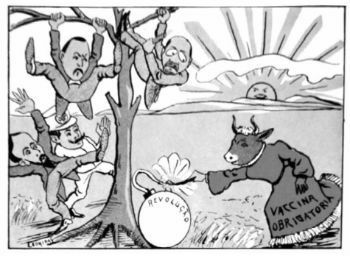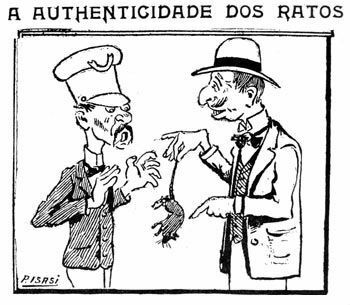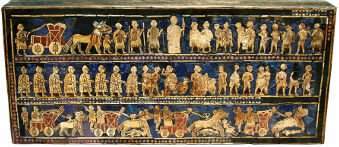THE Vaccine Revolt it was a popular rebellion against the smallpox vaccine, which took place in Rio de Janeiro, in November 1904.
Summary: Causes and Consequences
When President Rodrigues Alves took office in 1902, tons of garbage accumulated in the streets of the city of Rio de Janeiro.
In this way, the smallpox virus spread. Rats and mosquitoes that carried fatal diseases such as bubonic plague and yellow fever, which killed thousands of people annually, proliferated.
Decided to re-urbanize and clean up the city, Rodrigues Alves appointed engineer Pereira Passos as mayor and physician Oswaldo Cruz as Director of Public Health. With this, it began the construction of large public works, the widening of streets, avenues and the fight against diseases.
The redevelopment of Rio de Janeiro, however, sacrificed the poorest layers of the city, who were displaced, as they had their shacks and tenements demolished. The population was forced to move away from work and to the hills, increasing the construction of favelas.
As a result of the demolitions, rents rose in price, leaving the population increasingly angry.

Charge: The Mandatory Vaccination Law lights the fuse of the revolution while politicians and Oswaldo Cruz (in a doctor's dress) are terrified
It was necessary to fight the mosquito and the rat, which transmit the main diseases. Therefore, the main purpose of the campaign was precisely to end the outbreaks of diseases and the accumulated garbage in the city.
First, the government announced that it would pay the population for each mouse that was turned over to the authorities. The result was the emergence of breeders of these rodents in order to earn extra income.

Charge from Jornal do Brasil. August 11, 1904, criticizing those who took advantage of raising rats only to receive compensation
Due to the fraud, the government suspended the reward for the seizure of rats.
However, the sanitation campaign was carried out with authoritarianism, where houses were invaded and searched. No clarification was given about the importance of vaccine or hygiene.
At a time when people were dressed all over their bodies, showing their arms to get the vaccine was seen as "immoral". Thus, the population's dissatisfaction against the government was widespread, triggering "The Vaccine Revolt".
Mandatory vaccination
The doctor Oswaldo Cruz (1872-1917), hired to fight the diseases, imposed mandatory vaccination against the smallpox, for every Brazilian over six months of age.
Politicians, opposition military and the city's population opposed the vaccine. The press did not forgive Oswaldo Cruz, dedicating cruel cartoons to him mocking the effectiveness of the remedy.

Charge portraying scientist Oswaldo Cruz as Zé Povo's "skinner"
Agitators urged the urban mass to confront Public Health officials who, protected by the police, invaded homes and forcibly vaccinated people. The most radical preached resistance to bullets, claiming that the citizen had the right to preserve his own body and not accept that unknown liquid.
Discontent was widespread, adding to housing problems and the high cost of living, resulting in the Mandatory Vaccine Revolt. Between November 10 and 16, 1904, the popular layers of Rio de Janeiro took to the streets to face the agents of Public Health and the police.
The center of Rio de Janeiro was transformed into a war square with overturned trams, destroyed buildings and a lot of confusion on Avenida Central (now Avenida Rio Branco). The popular revolt had the support of the military that tried to use the dissatisfied masses to overthrow, without success, President Rodrigues Alves.
The rebel movement was dominated by the government, which arrested and sent some people to Acre. Then, the Mandatory Vaccine Law was modified, making its use optional.
Curiosity about the Vaccine Revolt
The Vaccine Revolt inspired novels, miniseries and even opera. The work "The scientist", by the Brazilian conductor Sílvio Barbato, tells the life of Oswaldo Cruz and dedicates an entire scene to the event.
Read more:
- First Republic
- Revolt of the whip
- Black Plague
- Brazil

